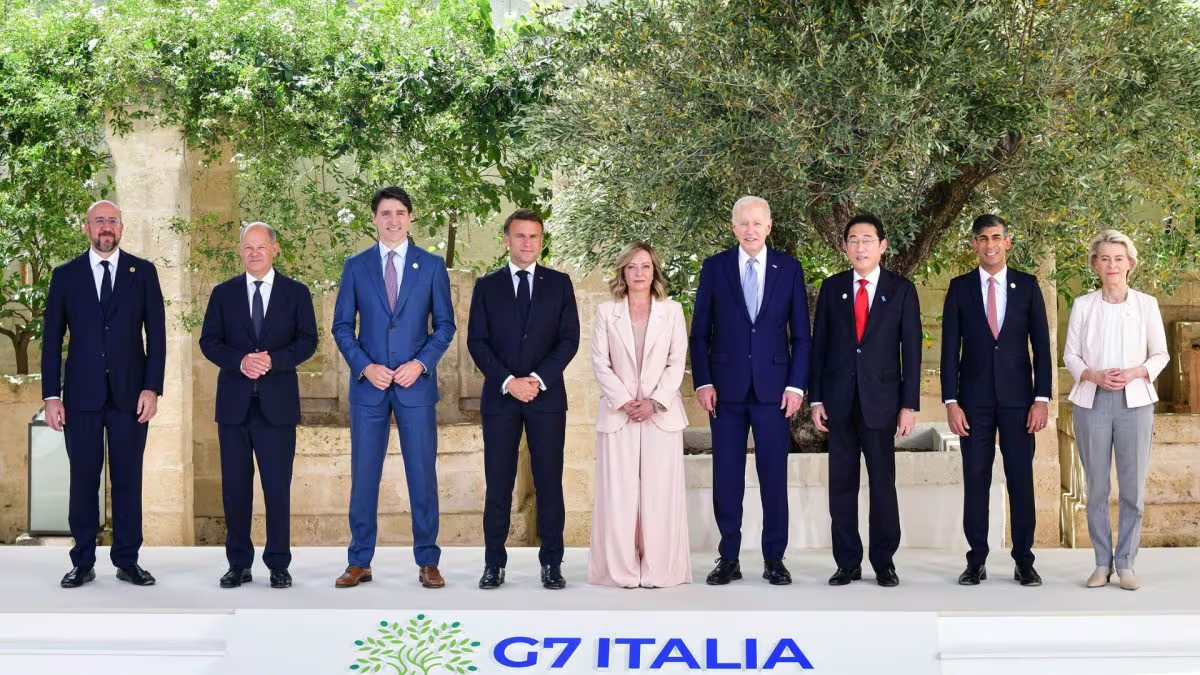China has sharply criticized the recent G7 Leaders’ Communique, accusing the group of using China-related issues as a pretext for unjust attacks. According to Beijing, the G7’s statements reflect ongoing efforts to maintain US and Western dominance in global affairs.
Responding to a media inquiry, Foreign Ministry Spokesperson Lin Jian denounced the G7’s accusations as unfounded and prejudiced. China also questioned the relevance and representation of the G7 in today’s global context.
Lin Jian pointed out that the seven countries represent only 10 percent of the world’s population and contribute less to global economic growth than China.
China’s accusation
Beijing accused the G7 of putting its own rules above international law and the principles of the UN Charter, thereby losing credibility among the international community. Lin Jian criticized the G7 for exacerbating global tensions through military maneuvers and regional interventions, contrary to its claims of safeguarding world peace. “The G7 incites bloc confrontation by drawing lines based on ideology and values,” he asserted.
China also dismissed the G7’s allegations of “Chinese overcapacity” as a guise for protectionism. Lin Jian argued that these claims are unsupported by economic facts and harm global economic cooperation and climate initiatives.
Despite these criticisms, the G7 reaffirmed its commitment to a free and open Indo-Pacific based on international law, emphasizing inclusivity, prosperity, security, and human rights. “We seek constructive and stable relations with China and recognize the importance of direct engagement to manage differences and address global challenges,” a White House statement read.
The G7 also called on China to contribute more actively to international peace, security, and environmental efforts. The group highlighted the need for cooperation on issues such as climate change, pollution, global health security, and economic stability.
The summit included participation from the US, UK, Canada, Germany, Italy, Japan, and France, along with the European Union. Italian Prime Minister Giorgia Meloni invited India as an ‘Outreach Country’ to the G7 summit held in Italy’s Apulia region from July 13-15. Prime Minister Narendra Modi addressed sessions on AI, energy, Africa, and the Mediterranean, discussing technology’s transformative role in human progress.
A longstanding enmity
China has had a contentious relationship with the Group of Seven (G7) for years, marked by frequent diplomatic clashes and opposing views on global governance, economic policies, and human rights.
One major point of contention has been the G7’s criticism of China’s human rights record, particularly concerning the treatment of ethnic minorities in Xinjiang and the suppression of political freedoms in Hong Kong. The G7 has repeatedly condemned China’s actions, prompting Beijing to accuse the group of interfering in its internal affairs and exhibiting a biased stance.
Trade practices have also been a significant source of conflict. The G7 has expressed concerns over China’s trade policies, alleging unfair practices such as intellectual property theft, forced technology transfers, and market access barriers. In response, China has accused the G7 of protectionism and attempting to stifle its economic rise.
Geopolitical tensions have further strained relations. The G7’s unified stance on maintaining a “free and open Indo-Pacific” has been seen by China as an effort to counter its influence in the region. The situation in the South China Sea, where China’s territorial claims overlap with those of several Southeast Asian nations, has been a focal point of disagreement. The G7 has called for the resolution of disputes based on international law, a position China perceives as biased.
Moreover, China’s Belt and Road Initiative (BRI) has faced scrutiny from the G7, which argues that it leads to debt dependency among participating countries. China defends the BRI as a development project aimed at mutual benefit and accuses the G7 of mischaracterizing its intentions.
These longstanding issues underscore the deep-seated differences between China and the G7, reflecting broader struggles over global influence and governance. As China continues to assert its role on the world stage, its relationship with the G7 remains fraught with challenges.
